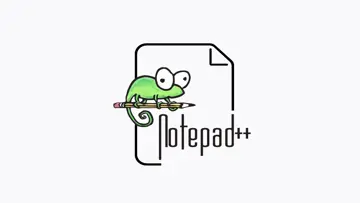GCC by MinGW: A Gateway to Powerful C/C++ Development on Windows
GCC by MinGW provides a comprehensive suite for developers looking to compile C and C++ applications seamlessly on Windows, albeit with some limitations in library support.
GCC is an open-source compiler used to compile programs and applications written in different programming languages such as C, C++, and Objective-C. GCC stands for GNU Compiler Collection, and it provides a significant advantage over other compilers as it supports several hardware platforms along with multiple software languages, which makes it highly versatile and suitable for most software development needs.
MinGW, on the other hand, is a port of GCC to Windows that allows developers to create native Windows applications using the same tools as on Linux or Unix platforms. It provides a collection of headers, libraries, and compilers to create programs that are portable between Linux and Windows.
MinGW includes several tools such as gcc, g++, as, ld, and others that allow programmers to build Windows executables from Linux or Unix systems.
MinGW also provides several features such as support for 64-bit systems, multithreading, and advanced optimization features that make it a popular choice among developers who want to create high-performance applications using the GCC compiler on Windows.
- MinGW offers an easy-to-use installer for Windows, which makes it easy for developers to install and set up the compiler quickly.
- The MinGW toolset is continually updated to support the latest features of the GCC compiler.
- Developers can choose between static or dynamic linking to create smaller executable files or shared libraries.
- The MinGW project is entirely open-source, which means that developers can look at the source code, modify it, or contribute their changes back to the community.
GCC by MinGW is an excellent toolset for developers who want to create Windows applications using the GCC compiler. It provides a comprehensive set of headers, libraries, and tools that make it easy to create high-performance executables that can run natively on Windows devices.
Overview
GCC is a Open Source software in the category Education developed by MinGW.
The latest version of GCC is 4.1.2, released on 02/18/2008. It was initially added to our database on 10/29/2007.
GCC runs on the following operating systems: Windows.
GCC has not been rated by our users yet.
Pros
- Supports a wide range of programming languages such as C, C++, and Fortran
- Compatible with multiple operating systems including Windows, macOS, and Linux
- GCC is open source and free to use, making it accessible to all developers
- Provides extensive compiler optimizations for better code performance
- Has a strong community support and regular updates for bug fixes and enhancements
Cons
- Can be complicated to set up and configure for beginners
- Documentation may not always be user-friendly for those new to the tool
- Can lack certain advanced features found in other proprietary compilers
FAQ
What is GCC?
GCC stands for GNU Compiler Collection. It is a suite of programming language compilers and tools that are used to compile various programming languages.
What is MinGW?
MinGW stands for Minimalist GNU for Windows. It is a development environment for creating native Microsoft Windows applications using the GCC compiler.
How does MinGW relate to GCC?
MinGW provides a port of the GCC compilers and related tools that are specifically designed for Windows. It allows developers to use GCC on Windows systems, providing a familiar development experience.
What programming languages does GCC support?
GCC supports a wide range of programming languages including C, C++, Objective-C, Fortran, Ada, and more. It is considered the standard compiler for many open-source projects.
Can MinGW be used to compile programs targeting platforms other than Windows?
Yes, MinGW can be used to cross-compile programs for other platforms as well. By specifying appropriate configuration options, developers can target different platforms or architectures using the GCC compiler provided by MinGW.
Is MinGW free and open-source software?
Yes, MinGW is distributed under the GNU General Public License (GPL). It is free to use, modify, and distribute.
How do I install MinGW on Windows?
To install MinGW on Windows, you can download the installer from the official MinGW website and run it. The installer will guide you through the installation process, allowing you to customize the components you want to install.
Can MinGW be used with popular IDEs?
Yes, MinGW can be configured to work with popular IDEs such as Eclipse, Code::Blocks, and Dev-C++. These IDEs usually provide options to set up the MinGW toolchain for compiling and debugging code.
Does MinGW provide a runtime library?
No, MinGW itself does not provide a separate runtime library. However, it links programs against the standard C runtime library (msvcrt.dll) that is available on Windows systems.
Where can I find documentation and support for MinGW?
You can find documentation, tutorials, and support for MinGW on the official MinGW website, community forums, and various online resources dedicated to programming with GCC and MinGW.

Boris Weber
I am an editor at UpdateStar. I started as a support engineer, and am now specialized in writing about general software topics from a usability and performance angle among others. I telecommute from UpdateStar’s Berlin office, when I am not working remote as a digital nomad for UpdateStar. When I'm not analyzing the latest software updates, you can find me exploring new cities, immersing myself in local cultures, and discovering innovative tech trends across the globe.
Latest Reviews by Boris Weber
Latest Reviews
|
|
MatheGrafix
MatheGrafix: Revolutionizing Math Visualization |
|
|
Tavoletta Wacom
Elevate Your Creativity with Wacom's Tavoletta |
|
|
CS 3D Imaging Light
Transform Your Imaging Experience with CS 3D Imaging Light |
|
WeiyunApp
WeiyunApp: Efficient Cloud Storage from Tencent |
|
|
|
115生活
Streamline Your Daily Life with 115生活 |
|
Prima Cartoonizer versión
Transform Your Photos into Cartoons with Prima Cartoonizer! |
|
|
UpdateStar Premium Edition
Keeping Your Software Updated Has Never Been Easier with UpdateStar Premium Edition! |
|
|
Microsoft Edge
A New Standard in Web Browsing |
|
|
Microsoft Visual C++ 2015 Redistributable Package
Boost your system performance with Microsoft Visual C++ 2015 Redistributable Package! |
|
|
Google Chrome
Fast and Versatile Web Browser |
|
|
Microsoft Visual C++ 2010 Redistributable
Essential Component for Running Visual C++ Applications |
|
|
Microsoft OneDrive
Streamline Your File Management with Microsoft OneDrive |





